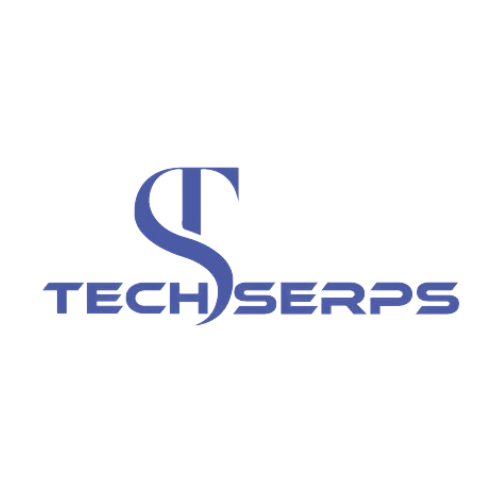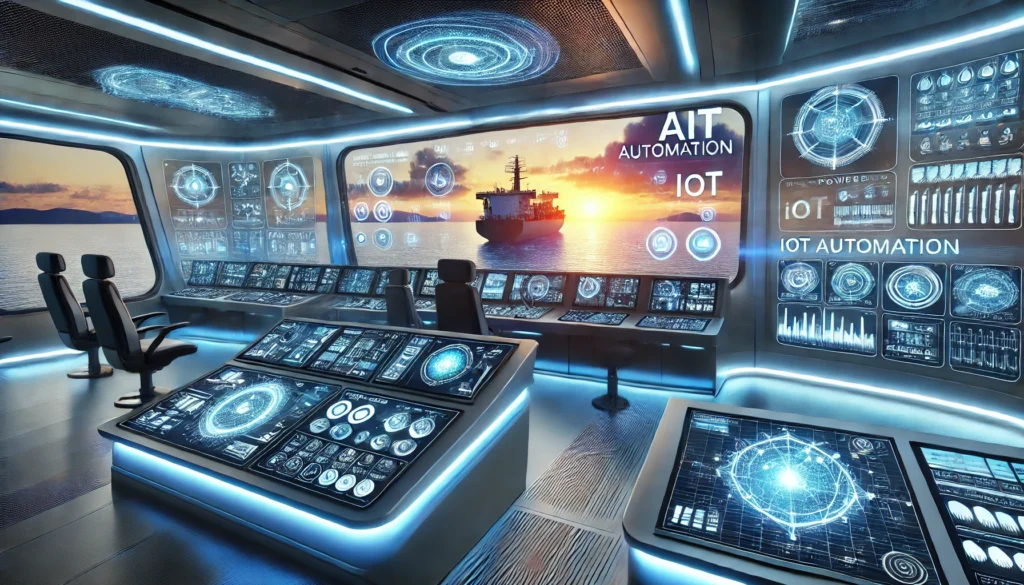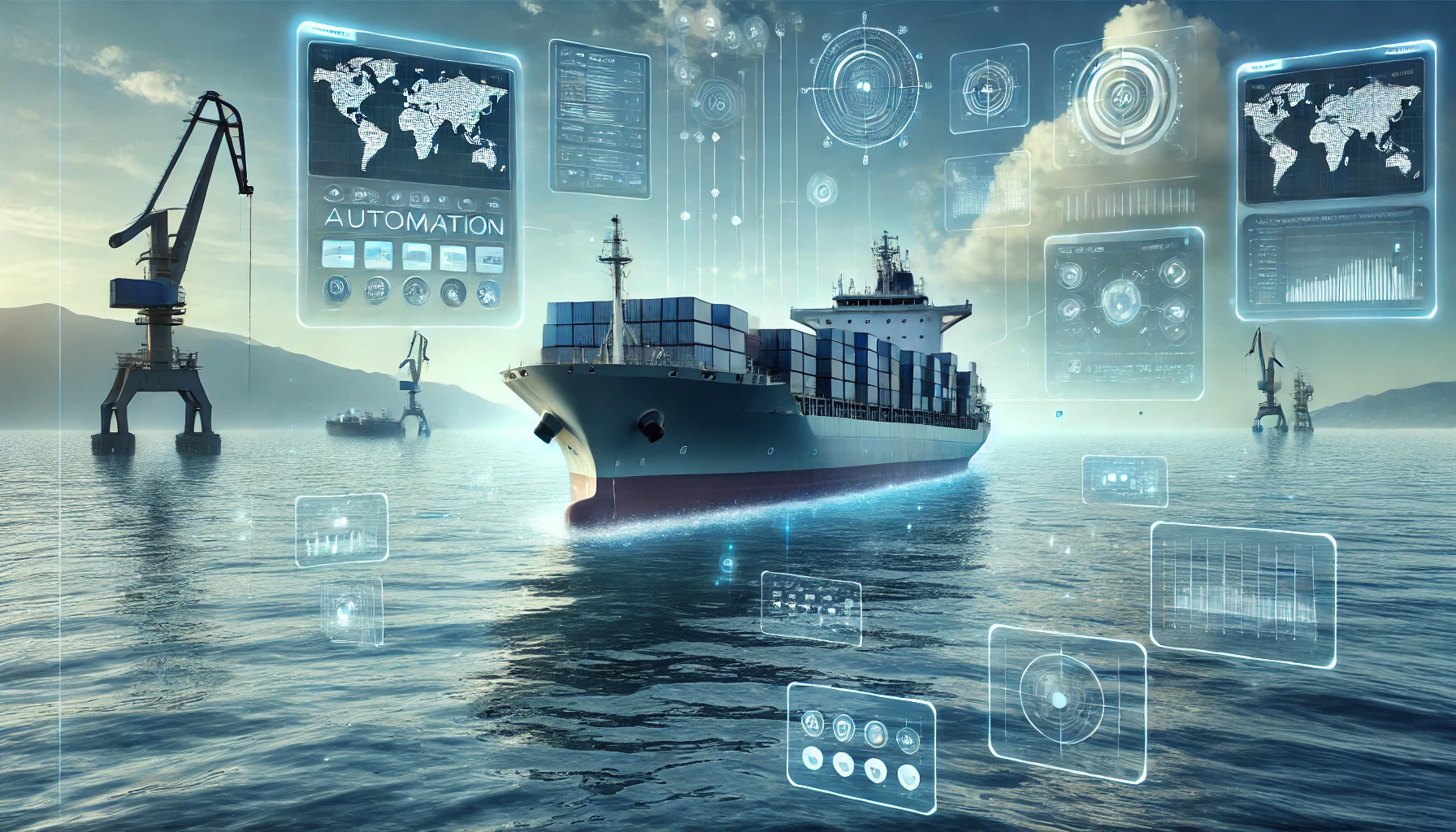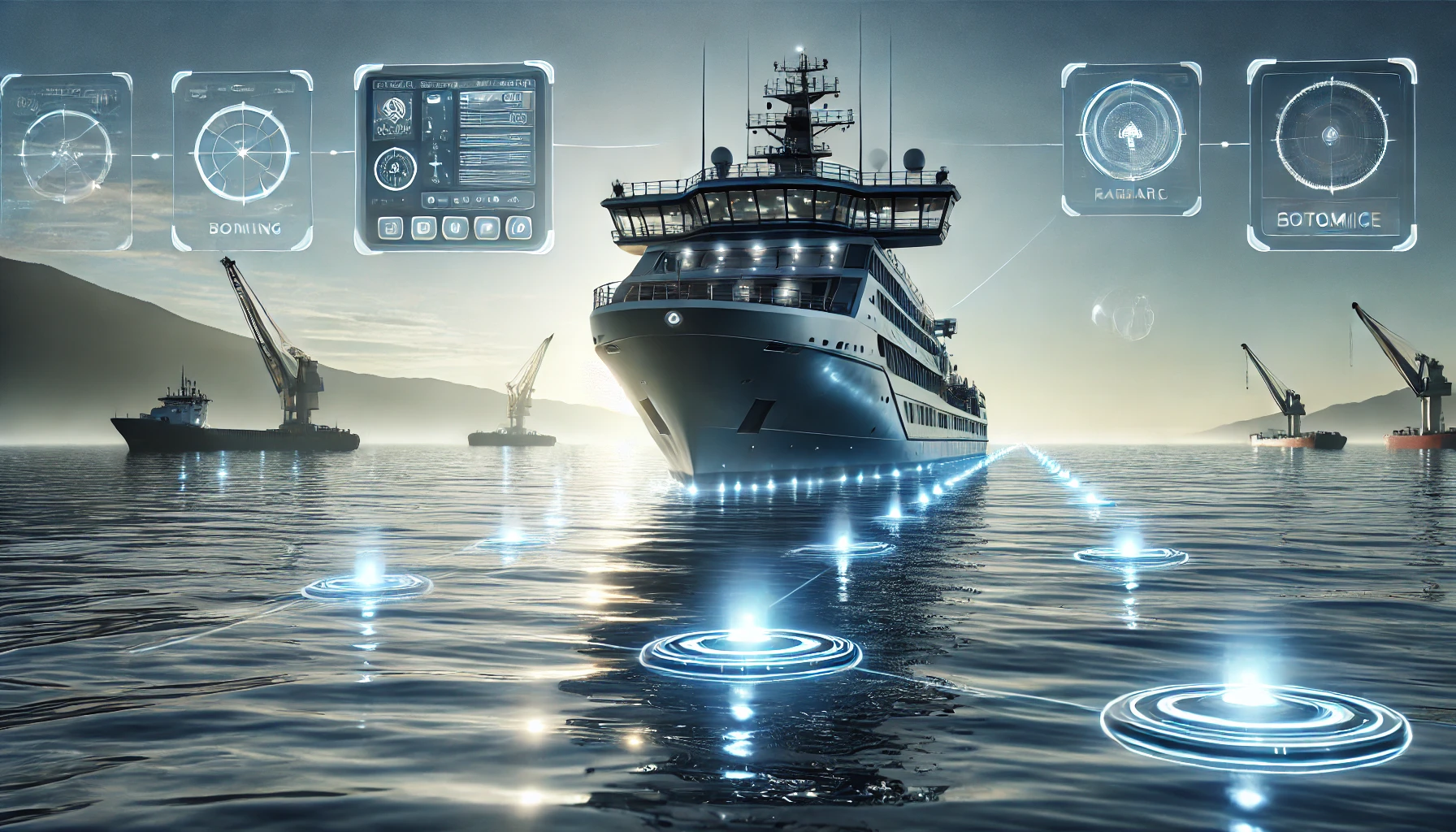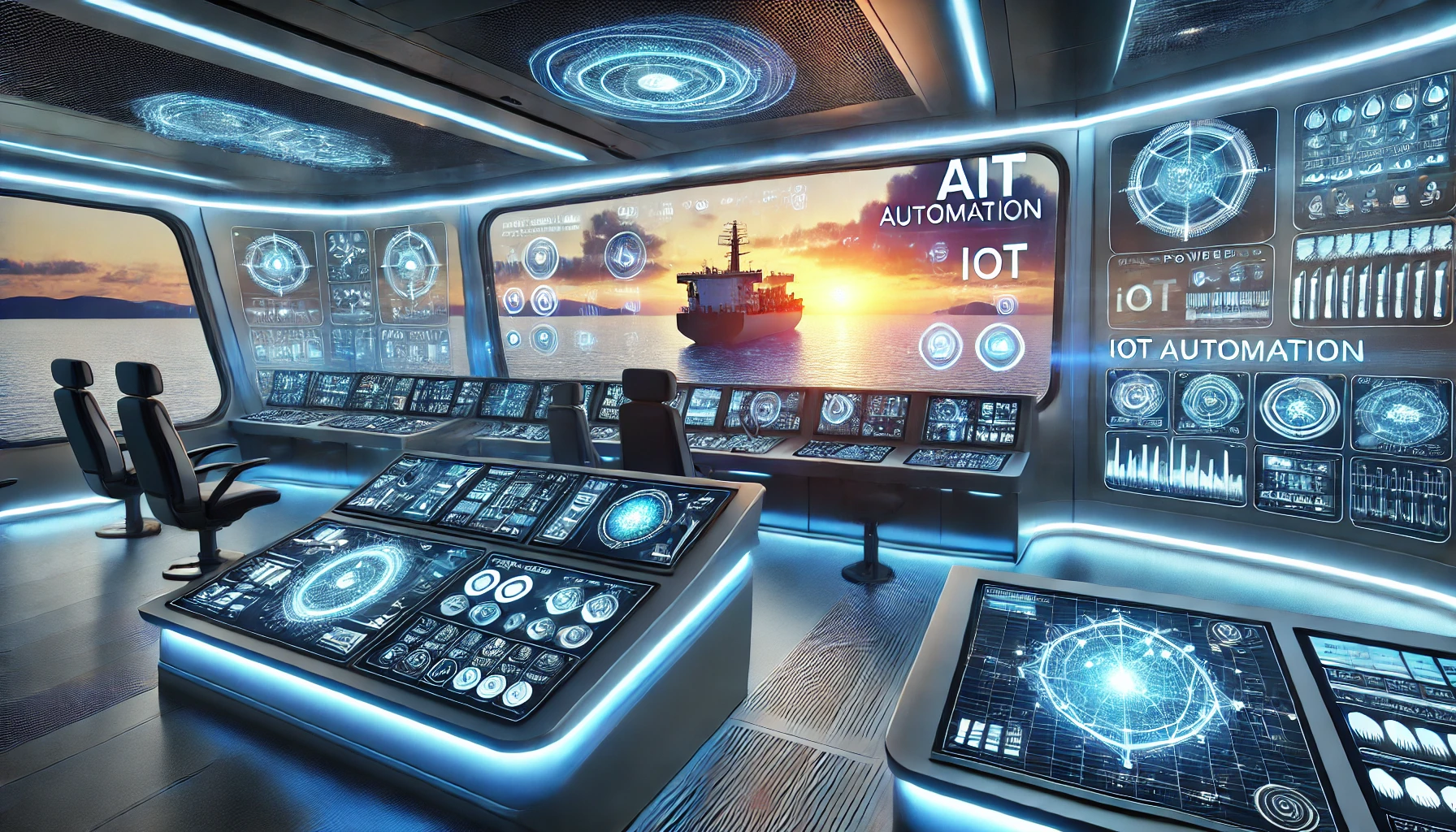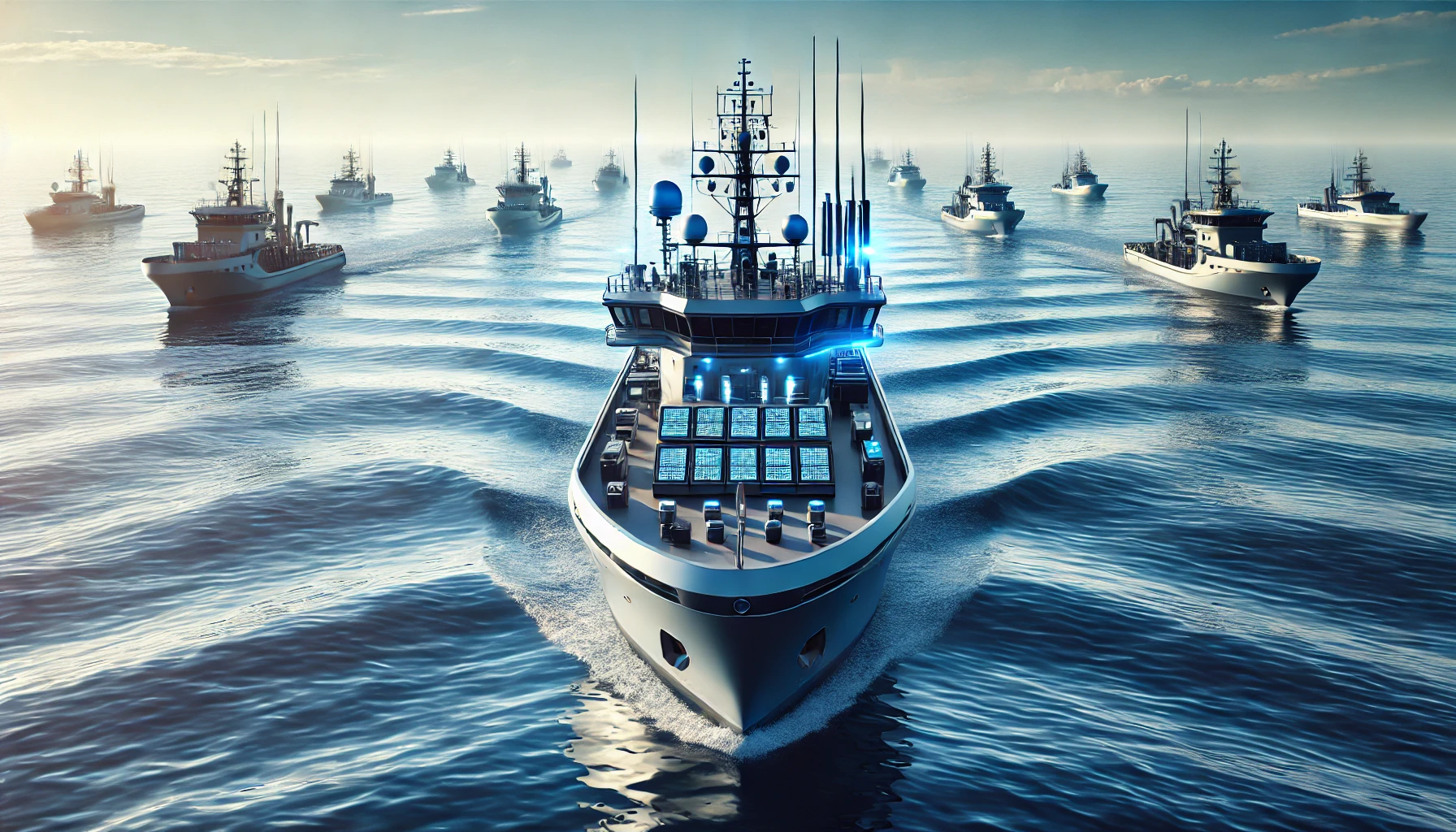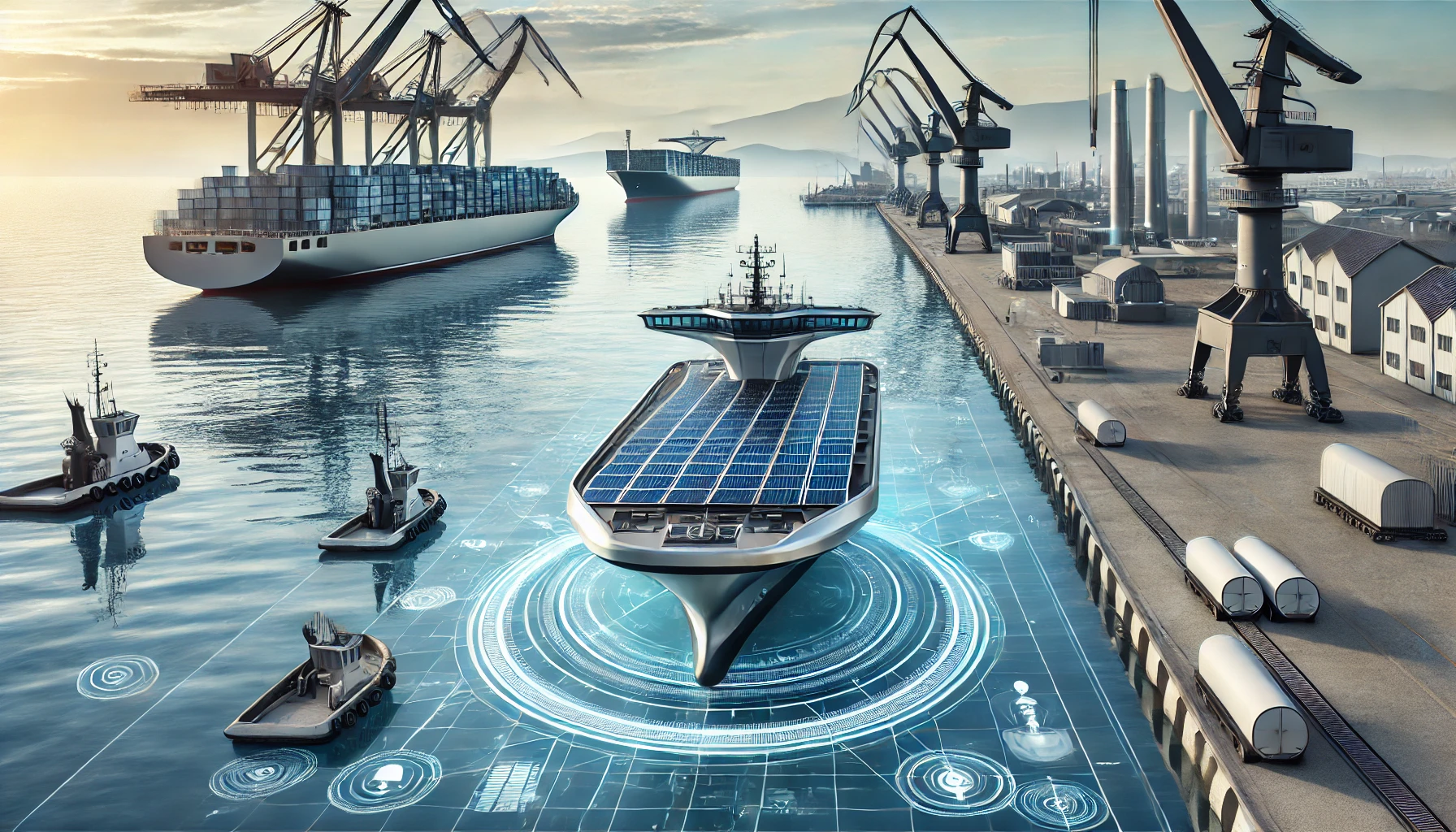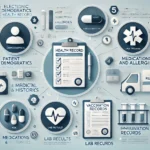Ship automation integrates advanced systems to streamline vessel operations, enhancing safety, efficiency, and reliability. By automating navigation, engine management, and safety protocols, ship automation reduces human error, optimizes performance, and ensures compliance with environmental standards, revolutionizing maritime operations.
What is Ship Automation?
Ship automation refers to integrating advanced systems that automate various operations on a vessel. These systems enhance safety, efficiency, and performance while reducing human error. From navigation to engine management, ship automation streamlines complex processes, making maritime operations more reliable.
Why Ship Automation is Essential for Modern Shipping
Ship automation has become a cornerstone for marine engineers and ETOS. With maritime operations becoming increasingly complex, automated systems ensure smoother workflows and greater efficiency. Furthermore, ship automation and control systems provide real-time monitoring, enabling engineers to make quick decisions to enhance ship performance.
Key Benefits of Ship Automation
- Improved Safety: Automation reduces human error, one of the leading causes of maritime accidents.
- Cost Efficiency: Automated systems optimize fuel consumption and maintenance schedules.
- Enhanced Reliability: Continuous monitoring ensures consistent performance.
- Environmental Compliance: Automation helps ships adhere to strict environmental regulations by managing emissions effectively.
The Role of Boening Ship Automation in Maritime Excellence
One of the leading players in ship automation is Boening ship automation. Known for their cutting-edge technology, Boening systems offer unparalleled precision and reliability. Their systems integrate seamlessly with navigation, engine control, and communication tools, making them a favourite among ship operators.
Features of Boening Ship Automation
- Real-time data monitoring
- Seamless integration with other ship systems
- Enhanced safety protocols
- User-friendly interfaces for marine engineers and ETOS
Boening’s innovative approach to ship automation has set a benchmark in the industry, ensuring vessels operate at their optimum levels. Their solutions improve operations and empower professionals to perform at their best.
Real-World Applications of Boening Ship Automation
Boening systems are widely used in:
- Cargo Ships: Ensuring safe and efficient transportation of goods.
- Passenger Ships: Enhancing the comfort and safety of passengers.
- Naval Vessels: Providing precision and reliability in critical missions.
Ship Automation and Control Systems: A Closer Look
At the heart of ship automation are its advanced control systems, which are designed to monitor and manage various shipboard operations. Let’s delve deeper into the critical components of ship automation and control systems.
Core Components of Ship Automation and Control Systems
- Navigation Systems: Automated navigation tools reduce human error and enhance route planning efficiency.
- Engine Management: Real-time engine performance monitoring ensures fuel efficiency and timely maintenance.
- Safety Systems: Fire detection, emergency protocols, and communication tools are integrated to protect crew and cargo.
- Power Management: Ensures optimal energy distribution across shipboard systems.
- Communication Systems: Facilitate seamless interaction between crew members and automated systems.
Ship automation for marine engineers and ETOS simplifies these complex operations, enabling professionals to focus on critical decision-making tasks.
Innovations in Ship Automation and Control Systems
- Artificial Intelligence: AI-driven analytics for predictive maintenance and decision-making.
- IoT Integration: Real-time data sharing across systems for improved efficiency.
- Remote Monitoring: Enabling off-site experts to assist in operations.
Boning Ship Automation: Leading the Way in Innovation
Boning ship automation is another key player in the field. Their systems are mainly known for their modular designs and ease of customization. Boning’s approach to ship automation empowers vessels to operate efficiently while maintaining high safety standards.
Advantages of Boning Ship Automation
- Modular and scalable systems
- Easy integration with existing shipping systems
- Advanced analytics for predictive maintenance
- Exceptional support for marine engineers and ETOS
Why Marine Engineers Trust Boning Ship Automation
Marine engineers and ETOS rely on Boning’s systems for their reliability and ease of use. The ability to customize systems ensures that each vessel operates at peak performance, regardless of its unique requirements.
The Future of Ship Automation
The future of ship automation is promising. As technology advances, we’re seeing a shift towards fully autonomous vessels. These ships will rely on artificial intelligence and machine learning to make decisions, further enhancing efficiency and safety.
How Ship Automation Benefits Marine Engineers and ETOS
- Time-Saving: Automated systems handle routine tasks, freeing up time for critical operations.
- Enhanced Safety: Continuous monitoring and real-time alerts reduce the risk of accidents.
- Skill Enhancement: Marine engineers and ETOS gain access to advanced tools that improve their expertise.
Trends Shaping the Future of Ship Automation
- Green Shipping: Automation technologies focused on reducing environmental impact.
- Cybersecurity: Protecting automated systems from cyber threats.
- Advanced Sensors: Improved sensors for navigation and system monitoring.
- Fleet Management: Centralized control of multiple vessels.
How to Stay Ahead in Ship Automation
For professionals in the maritime industry, staying updated with the latest advancements in ship automation is crucial. Regular training, workshops, and certifications can help you stay ahead in this ever-evolving field.
Tips for Marine Engineers and ETOS
- Attend industry conferences to learn about the latest trends.
- Enroll in specialized courses focusing on ship automation.
- Network with peers to share insights and experiences.
- Explore hands-on training with leading ship automation systems.
Conclusion: Embracing the Future with Ship Automation
Ship automation is not just a trend; it’s the future of maritime operations. By integrating advanced systems like Boening ship automation and Boning ship automation, vessels can achieve unparalleled efficiency and safety. This technological evolution presents an exciting opportunity for marine engineers and ETOS to enhance their skills and contribute to a more sustainable maritime industry. And remember, staying hydrated with tools like an infuser water bottle is just as important during those long sea-hours!
FAQs about Ship Automation
1. What is ship automation?
Ship automation involves advanced systems that automate key vessel operations, enhancing safety, efficiency, and performance while reducing human error. These systems manage navigation, engine controls, and safety protocols, streamlining maritime operations for improved reliability and reduced operational costs.
2. Why is ship automation important for modern shipping?
Ship automation is essential for improving efficiency, minimizing risks, and ensuring environmental compliance. Automated systems enable real-time monitoring and data analysis, which helps marine engineers and ETOS optimize workflows, manage resources, and make informed decisions in complex maritime environments.
3. What are the benefits of ship automation?
Key benefits include enhanced safety through error reduction, cost efficiency via optimized fuel use, improved operational reliability, and better environmental compliance. These systems also support predictive maintenance and facilitate real-time decision-making for marine professionals.
4. How does Boening ship automation stand out in the maritime industry?
Boening ship automation is known for its seamless integration, real-time data monitoring, and enhanced safety features. Its user-friendly systems support marine engineers and ETOS by improving vessel performance, offering predictive analytics, and ensuring compatibility with modern shipping technologies.
5. What is the future of ship automation?
The future lies in fully autonomous vessels powered by AI, IoT, and advanced sensors. Trends like green shipping, cybersecurity enhancements, and centralized fleet management will shape the industry, providing marine professionals with cutting-edge tools for sustainable and efficient operations.
